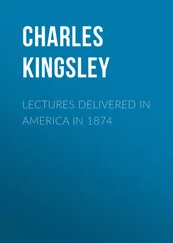Charles Kingsley - Froude's History of England
Здесь есть возможность читать онлайн «Charles Kingsley - Froude's History of England» — ознакомительный отрывок электронной книги совершенно бесплатно, а после прочтения отрывка купить полную версию. В некоторых случаях можно слушать аудио, скачать через торрент в формате fb2 и присутствует краткое содержание. Издательство: Иностранный паблик, Жанр: foreign_prose, История, foreign_edu, foreign_antique, на английском языке. Описание произведения, (предисловие) а так же отзывы посетителей доступны на портале библиотеки ЛибКат.
- Название:Froude's History of England
- Автор:
- Издательство:Иностранный паблик
- Жанр:
- Год:неизвестен
- ISBN:нет данных
- Рейтинг книги:5 / 5. Голосов: 1
-
Избранное:Добавить в избранное
- Отзывы:
-
Ваша оценка:
- 100
- 1
- 2
- 3
- 4
- 5
Froude's History of England: краткое содержание, описание и аннотация
Предлагаем к чтению аннотацию, описание, краткое содержание или предисловие (зависит от того, что написал сам автор книги «Froude's History of England»). Если вы не нашли необходимую информацию о книге — напишите в комментариях, мы постараемся отыскать её.
Froude's History of England — читать онлайн ознакомительный отрывок
Ниже представлен текст книги, разбитый по страницам. Система сохранения места последней прочитанной страницы, позволяет с удобством читать онлайн бесплатно книгу «Froude's History of England», без необходимости каждый раз заново искать на чём Вы остановились. Поставьте закладку, и сможете в любой момент перейти на страницу, на которой закончили чтение.
Интервал:
Закладка:
It is not probable that this writer will be likely to undervalue political economy, or the steam-engine, or any other solid and practical good which God has unveiled to this generation. All that he does demand (for he has a right to demand it) is that rational men should believe that our forefathers were at least as good as we are; that whatsoever their measure of light was, they acted up to what they knew as faithfully as we do; and that, on the whole, it was not their fault if they did not know more. Even now the real discoveries of the age are made, as of old, by a very few men; and, when made, have to struggle, as of old, against all manner of superstitions, lazinesses, scepticisms. Is the history of the Minié rifle one so very complimentary to our age’s quickness of perception that we can afford to throw many stones at the prejudices of our ancestors? The truth is that, as of old, ‘many men talk of Robin Hood who never shot in his bow’; and many talk of Bacon who never discovered a law by induction since they were born. As far as our experience goes, those who are loudest in their jubilations over the wonderful progress of the age are those who have never helped that progress forward one inch, but find it a great deal easier and more profitable to use the results which humbler men have painfully worked out as second-hand capital for hustings-speeches and railway books, and flatter a mechanics’ institute of self-satisfied youths by telling them that the least instructed of them is wiser than Erigena or Roger Bacon. Let them be. They have their reward. And so also has the patient and humble man of science, who, the more he knows, confesses the more how little he knows, and looks back with affectionate reverence on the great men of old time—on Archimedes and Ptolemy, Aristotle and Pliny, and many another honourable man who, walking in great darkness, sought a ray of light, and did not seek in vain,—as integral parts of that golden chain of which he is but one link more; as scientific forefathers, without whose aid his science could not have had a being.
Meanwhile, this general tone of irreverence for our forefathers is no hopeful sign. It is unwise to ‘inquire why the former times were better than these’; to hang lazily and weakly over some eclectic dream of a past golden age; for to do so is to deny that God is working in this age, as well as in past ages; that His light is as near us now as it was to the worthies of old time.
But it is more than unwise to boast and rejoice that the former times were worse than these; and to teach young people to say in their hearts, ‘What clever fellows we are, compared with our stupid old fogies of fathers!’ More than unwise; for possibly it may be false in fact. To look at the political and moral state of Europe at this moment, Christendom can hardly afford to look down on any preceding century, and seems to be in want of something which neither science nor constitutional government seems able to supply. Whether our forefathers also lacked that something we will not inquire just now; but if they did, their want of scientific and political knowledge was evidently not the cause of the defect; or why is not Spain now infinitely better, instead of being infinitely worse off, than she was three hundred years ago?
At home, too—But on the question whether we are so very much better off than our forefathers Mr. Froude, not we, must speak: for he has deliberately, in his new history, set himself to the solution of this question, and we will not anticipate what he has to say; what we would rather insist on now are the moral effects produced on our young people by books which teach them to look with contempt on all generations but their own, and with suspicion on all public characters save a few contemporaries of their own especial party.
There is an ancient Hebrew book, which contains a singular story concerning a grandson who was cursed because his father laughed at the frailty of the grandfather. Whether the reader shall regard that story (as we do) as a literal fact recorded by inspired wisdom, as an instance of one of the great root-laws of family life, and therefore of that national life which (as the Hebrew book so cunningly shows) is the organic development of the family life; or whether he shall treat it (as we do not) as a mere apologue or myth, he must confess that it is equally grand in its simplicity and singular in its unexpected result. The words of the story, taken literally and simply, no more justify the notion that Canaan’s slavery was any magical consequence of the old patriarch’s anger than they do the well-known theory that it was the cause of the Negro’s blackness. Ham shows a low, foul, irreverent, unnatural temper towards his father. The old man’s shame is not a cause of shame to his son, but only of laughter. Noah prophesies (in the fullest and deepest meaning of that word) that a curse will come upon that son’s son; that he will be a slave of slaves; and reason and experience show that he spoke truth. Let the young but see that their fathers have no reverence for the generation before them, then will they in turn have no reverence for their fathers. Let them be taught that the sins of their ancestors involve their own honour so little that they need not take any trouble to clear the blot off the scutcheon, but may safely sit down and laugh over it, saying, ‘Very likely it is true. If so, it is very amusing; and if not—what matter?’—Then those young people are being bred up in a habit of mind which contains in itself all the capabilities of degradation and slavery, in self-conceit, hasty assertion, disbelief in nobleness, and all the other ‘credulities of scepticism’: parted from that past from which they take their common origin, they are parted also from each other, and become selfish, self-seeking, divided, and therefore weak: disbelieving in the nobleness of those who have gone before them, they learn more and more to disbelieve in the nobleness of those around them; and, by denying God’s works of old, come, by a just and dreadful Nemesis, to be unable to see his works in the men of their own day; to suspect and impugn valour, righteousness, disinterestedness in their contemporaries; to attribute low motives; to pride themselves on looking at men and things as ‘men who know the world,’ so the young puppies style it; to be less and less chivalrous to women, less and less respectful to old men, less and less ashamed of boasting about their sensual appetites; in a word, to show all those symptoms which, when fully developed, leave a generation without fixed principles, without strong faith, without self-restraint, without moral cohesion, the sensual and divided prey of any race, however inferior in scientific knowledge, which has a clear and fixed notion of its work and destiny. That many of these signs are themselves more and more ominously showing in our young men, from the fine gentleman who rides in Rotten Row to the boy-mechanic who listens enraptured to Mr. Holyoake’s exposures of the absurdity of all human things save Mr. Holyoake’s self, is a fact which presses itself most on those who have watched this age most carefully, and who (rightly or wrongly) attribute much of this miserable temper to the way in which history has been written among us for the last hundred years.
Читать дальшеИнтервал:
Закладка:
Похожие книги на «Froude's History of England»
Представляем Вашему вниманию похожие книги на «Froude's History of England» списком для выбора. Мы отобрали схожую по названию и смыслу литературу в надежде предоставить читателям больше вариантов отыскать новые, интересные, ещё непрочитанные произведения.
Обсуждение, отзывы о книге «Froude's History of England» и просто собственные мнения читателей. Оставьте ваши комментарии, напишите, что Вы думаете о произведении, его смысле или главных героях. Укажите что конкретно понравилось, а что нет, и почему Вы так считаете.












